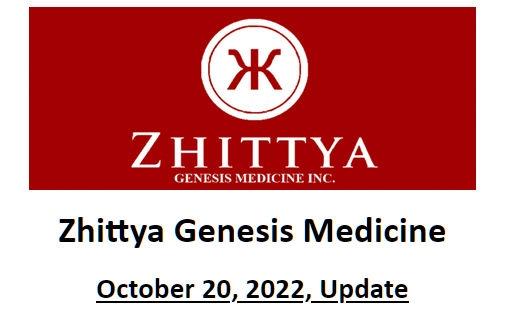I know some of you are very skeptical about this company (I have some doubts but I'm crossing my fingers).
I just got a very lengthy update email from Zhittya Genesis Medicine about progress with their PD clinical phase 3 trial progress. I copied the entire email to a PDF and uploaded it for you to download and read.
https://drive.google.com/file/d/1KxiGTtzRdSuXPxFHMA5cTIPftIaqB6zy/view?usp=sharing
HERE IS A KEY PART IN THAT UPDATE:
"Defer or delay disease progression: When one is developing a drug for an unmet medical need such as Parkinson's disease, to be able to stop or reverse the disease is the hoped for outcome. However, another beneficial outcome, although not a cure, would be to significantly defer or delay disease progression. Below is a figure from a peer-reviewed publication looking at the 5-year progression of 316 Parkinson's disease subjects."
(there is a graph inserted here that you will find in the PDF when you download it.)
"The PD Questionnaire motor skills scores (Part III) were followed over five years in both medicated (blue line) and unmedicated (red line) patients. The higher the score, the worse on motor skill testing. Not to be unduly morbid, but clearly the trends in both medicated and unmedicated patients (from a different company, different drug) is in only one direction, and that is a steady worsening of motor scores.
"Another thing I came across was how the FDA looks at these scores in the approval of new Parkinson's drugs. In a US clinical trial sponsored by Roche, the primary endpoint they were trying to reach was a "meaningful progression" on MDS-UPDRS, Part III scores over a 1-year period (the Roche trial failed). "Meaningful" was defined as a decline in Part III scores over a 1-year period by more than 5 points. We certainly are hitting that "meaningful" definition in most of our patients so far, but obviously we need data at longer time points."
"So, in summary, please be patient with us and your perceived progress after treatment. Initial improvement may be followed by a plateau period or even a perceived worsening of symptoms. The key is to see how things look after a 9-12 month period to assess improvements or a delay in disease progression. During this time frame, we can also form ideas on new dosing regimens and how often we may need to retreat patients. We are just beginning this journey, and we appreciate all the efforts our experimental "lab rats" have made for us."
